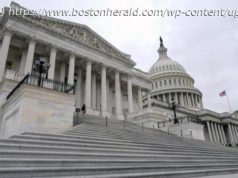Tuesday: What the tax bill means for California, transplanting Silicon Valley’s magic, the Ventura fire and reaction to our Berkeley housing story
Good morning.
(Want to get California Today by email? Here’s the sign-up .)
As Republicans in Washington work to combine their tax bills into one, economists and tax specialists on the West Coast are adding up the ways that the changes could hurt California.
Among the most publicized is the capping of the mortgage interest deduction, which could make buying a home in California even less affordable than it is now. The abolishing of deductions for state and local taxes, which could sharply raise Californians’ tax bill, is another.
“I’ve never seen anything like this,” said Gonzalo Freixes, a tax expert at the U. C.L.A. Anderson School of Management. “It could have spiraling consequences — the economy, the real estate market, revenues to local governments — it goes further and further into things where it could have a negative impact.”
But the sweeping tax bill extends well beyond headline changes.
The House bill called for the elimination of the tax credit for electric vehicles, a potentially big blow for Tesla, which has large manufacturing facilities in California.
Under the Senate bill, single filers earning $160,000 to around $200,000, of whom there are many in coastal California, would see their top marginal tax rate increase to 32 percent from 28 percent.
Research universities like Stanford, Berkeley, U. C.L.A. and Caltech would likely be hit by the repeal of deductions for graduate students and a new tax on endowment income. Executives wanting to pursue a midcareer M. B. A. might reconsider; the House bill removes deductions for professional education courses.
“These things have big consequences,” said Ken Rosen, chairman of the Fisher Center for Real Estate and Urban Economics at Berkeley’s Haas School of Business.
“It makes the decision of staying in California much more difficult,” Mr. Rosen said. “It’s already difficult, it’s already expensive. This adds one more negative.”
The potential winners in California are companies like Google and Apple, which would benefit from a slashed corporate tax rate and could repatriate billions of dollars of cash held overseas. Mr. Rosen is skeptical that the money will trickle down.
“I don’t think they are going to use that money to invest more in the U. S. than they already have,” he said.
(Please note: We regularly highlight articles on news sites that have limited access for nonsubscribers.)
• How would a California company spend its tax windfall? “You always have competing interests for that cash. Do you pay dividends? Do you buy new equipment?” [ The New York Times]
• Gov. Jerry Brown compares Republican congressional leaders to “Mafia thugs” [ Los Angeles Times]
• Will the tax bill lower home prices in California? [ The Mercury News]
• Two San Joaquin County forensic pathologists, including Bennet Omalu, the Nigerian-born neuropathologist who was the inspiration for the movie, “Concussion,” have documented what they say is wrongdoing by Sheriff-Coroner Steve Moore. The sheriff is accused of labeling certain deaths as “accidents” rather than “homicides” to shield from prosecution law enforcement officers who were involved. [ KQED]
• Steve Case, founder of AOL, has teamed up with J. D. Vance, author of “Hillbilly Elegy.” Their mission: Spread the magic of Silicon Valley to the middle of America. [ The New York Times]
• Where Silicon Valley is going to get in touch with its soul . [ The New York Times]
• High winds caused a fast-moving fire to expand to tens of thousands of acres in Ventura County on Monday night, forcing hundreds of people to flee their homes. [ Los Angeles Times]
• Lawyers for the Mexican man acquitted of murder in the death of Kate Steinle will appeal the only conviction to come from the trial — possession of a firearm. [ San Francisco Examiner]
• U. S. Border Patrol agents are getting sick along the Tijuana River Valley. The cause: 143 million gallons of Mexican sewage. [ The San Diego Union-Tribune]
We heard from over 700 readers in response to Conor Dougherty’s story about the fight over affordable housing in Berkeley.
Some readers wrote of how they were worried about rising rents and home prices from the lack of available housing in their neighborhoods. Others expressed concern over the loss of community they were witnessing as a result of rapid development.
Here are a few of their responses.
My generation, the millennials, have fought hard to eke out a life in our urban landscape. Until we allow for apartment buildings in single-family home-exclusive districts, gentrification will continue to ravage our neighborhoods, our friends, our support networks.
— Victoria Fierce in Oakland
These higher-density homes and apartments have not decreased the value of the single-family homes. It’s time to realize that being a renter is not a crime and a neighborhood can support many types of housing.
— Voter in the 49th in California
I live around the corner from this house. People who have been here forever and can never afford to move are seeing an almost immediate turnover of their community. It’s scary for them. When Kurt talked about his vegetables he wasn’t being so literal; he was describing the loss of an old and interdependent network of supportive and caring folks: a neighborhood.
— Daniel Rosenthal in Berkeley
This agenda does not promote affordable housing, it promotes developer profits. The developer in this article was not content with building a $1.4 million home in Berkeley. No, they wanted to build three $1 million dollar homes on one lot, doubling their revenue, while diminishing quality of life for the neighbors.
— Heather in San Francisco
Traffic is already impossible in the Bay Area. Doubling or quadrupling the housing density will just commensurately increase the travel times. Trying to go somewhere on the weekends is almost impossible at this point. High density housing will only make it worse.
— Bill H. in California
California Today goes live at 6 a.m. Pacific time weekdays.






